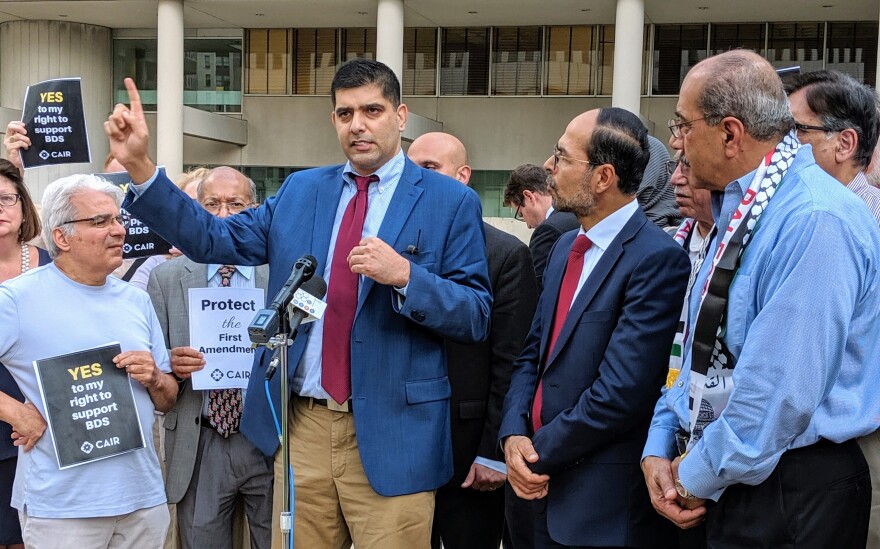U.S. District Court Judge Catherine Blake heard arguments Thursday in a case challenging an executive order Gov. Larry Hogan signed in 2017 that requires state contractors to sign an affidavit certifying that they do not and will not boycott Israel.
Saqib Ali, a software engineer and former Democratic member of the Maryland House of Delegates from Gaithersburg, is an outspoken supporter of the Boycott, Divest and Sanction movement that protests Israel’s treatment of Palestinians.
Ali said he recently went to apply for a state contract but didn’t submit the application because he had to sign a statement promising not to boycott Israeli companies.
“So if there is a company sitting on an illegal settlement in Palestine and I say, wait, I don’t want to do business with this company,” he said following Thursday’s hearing. “I don’t want to buy their hummus, or I don’t want to buy their Sodastream, or I don’t want to buy their wines, that’s — I cannot get a state contract in Maryland.”
That’s a violation of his right to free speech, he said.
In the courtroom Thursday, the state’s argument seemed to hinge on what it means to “boycott Israel.”
Adam Snyder, from the attorney general’s office, said vendors like Ali can boycott companies based on whether they contribute to Israeli settlements or based on their political positions. The only thing vendors can’t do is boycott companies for the sole reason that they are of Israeli nationality or based in Israel.
But Ali said he can boycott other countries — Saudi Arabia and Burma, for example — just not Israel.
Ali and his attorney, Council on American-Islamic Relations Senior Litigation Attorney Gadeir Abbas, told Blake that the restriction on contractors is intended to protect one viewpoint at the expense of another.
Similar laws in a few other states have been ruled unconstitutional, though some laws, such as one in Arkansas, have survived legal challenges.



